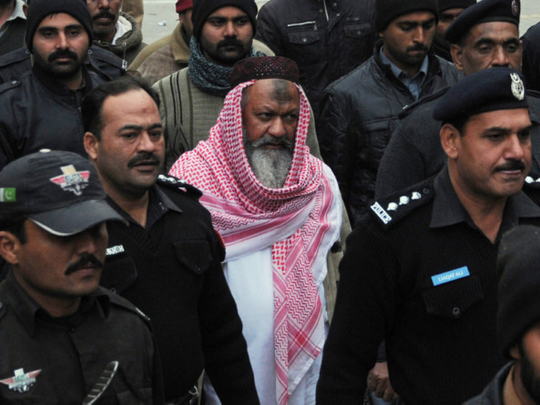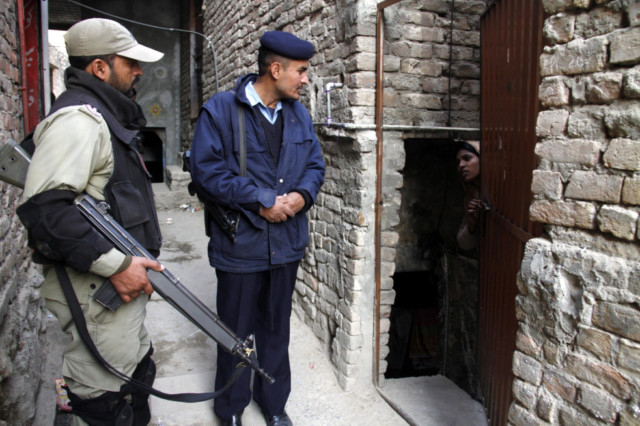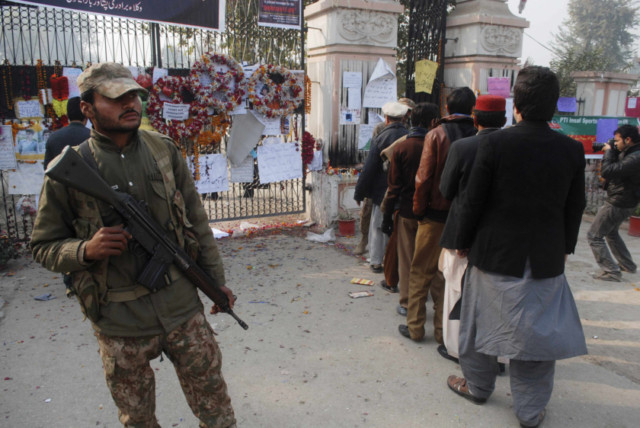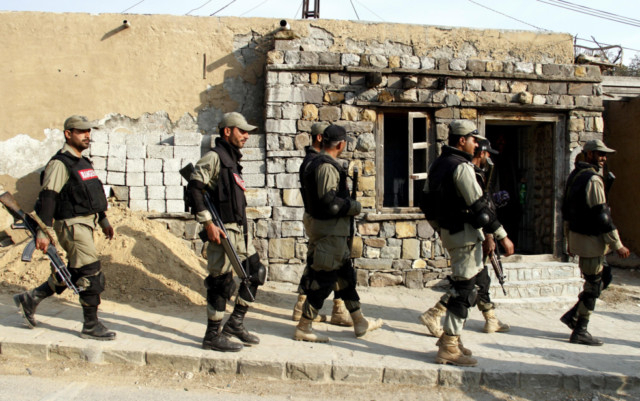
Islamabad, Pakistan: Pakistan’s prime minister Nawaz Sharif plans to host a gathering of Pakistan’s leading politicians on Wednesday in his latest bid to evolve a national consensus in taking unusual steps to combat terrorism.
The matter has become increasingly pressing since Taliban militants carried out a particularly brutal attack on an army run public school in the northern city of Peshawar on December 16, killing up to 150 people mostly including students aged between 14 and 15 as well as some teachers.
The Peshawar carnage is now increasingly being dubbed by Pakistani leaders as the country’s equivalent to 9/11 – the 2001 terrorist attacks in New York which catapulted former US president George W. Bush to order America’s longest running war in Afghanistan.
For Sharif, a widespread popular outcry over the Peshawar attack has brought home an urgent need to take unprecedented action. Yet, his ability to oversee a new and qualitatively improved direction for the future of Pakistan still needs to be tested.
In the hours after the Peshawar carnage, Sharif moved to remove a moratorium on carrying out the death penalty in Pakistan, setting in motion the possible hanging of scores of already condemned prisoners. On Friday and Sunday, up to six pro Taliban militants including five who were involved in a 2003 failed assassination attempt on Pakistan’s former military ruler General Pervez Musharraf were hanged.
Officials said Monday that Pakistan plans to execute around 500 militants in coming weeks.
An official in Sharif’s office said Tuesday the prime minister had cleared his diary to discuss “radical changes/reforms” with ministers, legal advisers and military top brass.
Though the executions received a temporary delay on Monday when a judge halted the hangings of five more militants, analysts believe the direction for the future has been set. “The (temporary delay) order came on a technicality. We are looking forward to continue sending convicts to the gallows” said a senior Pakistani government official on Tuesday who spoke to Gulf News on condition of anonymity.
On Tuesday, Sharif was locked in another round of hectic consultations with his key ministers and top army Generals led by General Raheel Sharif, Pakistan’s army chief. The matter at hand is simply to devise a comprehensive new policy to be presented to the political gathering planned for Wednesday as Sharif tries to carve a new formula to counter the Taliban threat. Recent reports have suggested that up to 500 individuals already on the death row in Pakistani prisons will likely be hung in the coming days, mainly to send out a powerful message to the Taliban underscoring an ‘enough is enough’ approach.
Yet, leading analysts are seeking to explore the extent to which Sharif’s resolve will last. “We need a very fundamental change in our country’s direction. Tackling terrorism requires action on a number of fronts. Essentially it requires a very major policy shift” retired Major General Mahmud Durrani, a former national security adviser to the prime minister, told Gulf News on Tuesday. General Durrani warned “the time for indecisive action is over”.
Meanwhile, Ghazi Salahuddin, a commentator for The NEWS newspaper who also spoke to this correspondent added; “the way forward has to be built upon a political and social transformation for Pakistan. The main question is, how soon can that transformation take place”.
In the long term, Sharif is hardly helped by widespread evidence of past indecisive action against Taliban militants dating back to the years prior to his tenure. In recent days, Pakistan’s mainstream politicians have joined ranks in demanding immediate action against Maulana Abdul Aziz, an Islamabad based pro-Taliban cleric who has publicly refused to condemn the Peshawar carnage. Aziz is based at the capital’s red mosque which was stormed by Pakistan army commandoes in 2007 when pro-Taliban militants holed up inside its premises tried to practically take over its surrounding neighborhood. The battle then eventually saw Aziz arrested when he tried to escape the mosque while clad in a ‘burqa’-a head to toe shrouded worn by some muslim women.
In response to Aziz’s outcry in the past week, Saad Khan, an Islamabad college student who spoke to this correspondent asked a widely raised question. “If this man (Aziz) continues with his pro-Taliban propaganda in the heart of our capital and without being restrained by our government, then the government is weak and ineffective” he said.
Meanwhile on the outskirts of Islamabad in the low to middle income Barahkahu neighborhood, others lamented the failure of Pakistan’s ruling structure in tackling worsening poverty which often drives unemployed young men in to the arms of hardline groups including the Taliban. “Four of my seven children are college graduates and they haven’t been able to get jobs” asked Nadeem Umar, an Islamabad taxi driver who spoke to this correspondent. “Do you think its fair to expect poor and unemployed people to not get attracted to crime and militancy” he added in a question which increasingly echoes across Pakistan.
— Farhan Bokhari is a Pakistan-based commentator who writes on political and economic matters.














